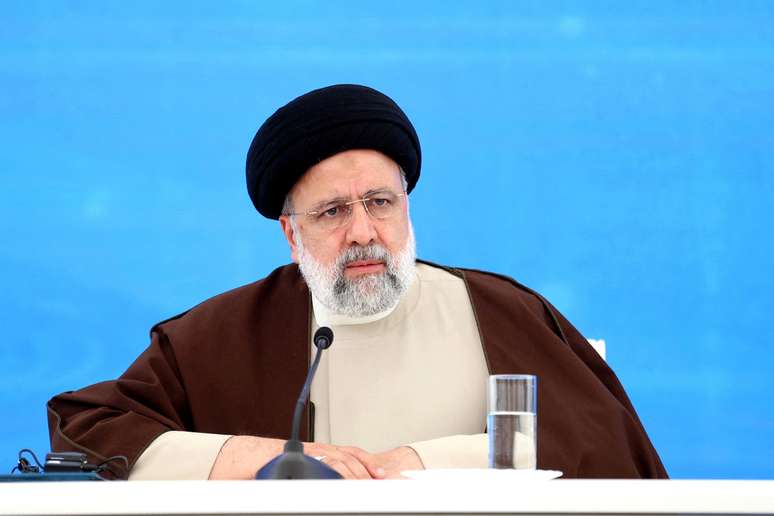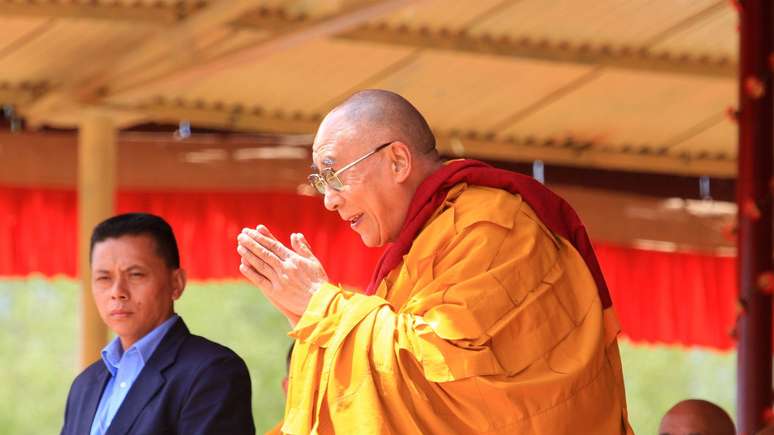According to analysts, Raisi was considered one of the favorites to succeed Supreme Leader Ali Khamenei, who is 85 years old, and is truly responsible for deciding the direction of the country; The death of the Iranian president is unlikely to change Iranian politics
The death of the president of Want, Ebrahim Raisithe helicopter crash leaves the dispute over the succession of the Iranian supreme leader, Ali Khamenei, more open, but it should not change the policy of the Persian country’s regime, according to analysts interviewed by Estadao.
Raisi was considered one of the favorites to succeed Khamenei, who is 85 years old, and is truly responsible for deciding the direction of the country. Iran’s supreme leader also has the power to choose who can run for political office.
The president has been in office since June 2021.
In 2017, Raisi lost the election to moderate Hassan Rouhani, who did not run in 2021 as he had already served two terms. “When Raisi ran and lost against Rohani, you could already see that he was neither charismatic nor popular”, underlines Vitélio Brustolin, professor at the Federal Fluminense University (UFF) and researcher at Harvard University.
“One of the reasons Khamenei allowed Raisi to run in the 2021 elections was because he did not consider Raisi a threat to his power,” says Brustolin.
In the 2021 elections Raisi presented himself as the regime’s favorite and was elected with 72.35% of the votes. The elections, however, took place with the lowest turnout in the history of the Islamic Republic: of the 59 million citizens entitled to vote, just over 28 million went to the polls. The feeling was that the elections would only serve to crown a candidate with the expected victory, which generated widespread apathy among Iranian voters.
Khamenei did not allow former Iranian President Mahmoud Ahmadinejad to run in the elections. Ahmadinejad supported a boycott of the 2021 elections and did not recognize the results.
Professor of international relations at the University of London and expert on Iran, Karabekir Akkoyunlu, underlines that Raisi’s successor will also have to have an intransigent profile, without representing a change in Iranian politics.
“All the main institutions of the Islamic Republic are under the control of the most traditionalist sector, the new president would be from this group,” explains Akkoyunlu.
Politics of confrontation with Israel
Even if the evidence indicates that Israel is not responsible for the accident that killed Raisi, it is difficult to predict Tehran’s next steps towards Tel Aviv following the death of the Iranian president.
“Normally I would say that the geopolitical impact would be minimal, but as this is an exceptionally unstable and dangerous time for the entire region, it is difficult to make this statement with absolute confidence. It certainly adds another level of complexity to an already complicated regional situation. image “, underlines the professor from the University of London.
On April 13, Iran carried out the largest strike in its history against Israel, which included 170 drones, 30 cruise missiles and 120 ballistic missiles, signaling that Tehran has managed to achieve great military power, even with multiple embargoes and economics against the country.
The attack against Israel occurred in retaliation for an aerial bombing attributed to Tel-Aviv who killed seven people, including two Iranian Revolutionary Guards officers, on April 1 at the country’s embassy in Damascus.
Iran also supports several armed groups in the Middle East. This support is part of an instrument of the Persian country’s foreign policy, for military but also religious reasons. The Islamic Republic is Shiite, as are the Houthis Yemen and Hezbollah inside Lebanon. The terrorist group Hamas is Sunni, but became closer to the Persian country in the 1990s, as it represented the largest opposition to Israel, after the 1993 Oslo Accords.
Source: Terra
Rose James is a Gossipify movie and series reviewer known for her in-depth analysis and unique perspective on the latest releases. With a background in film studies, she provides engaging and informative reviews, and keeps readers up to date with industry trends and emerging talents.







